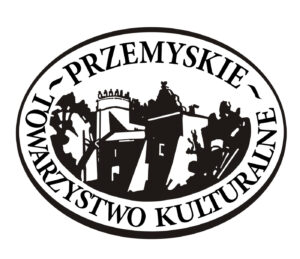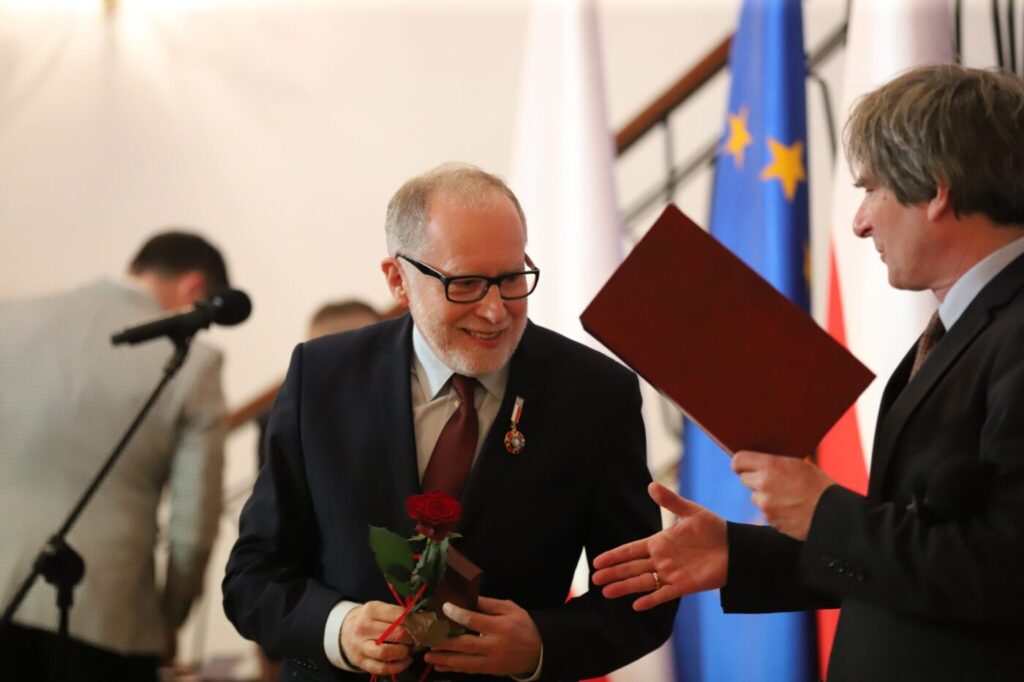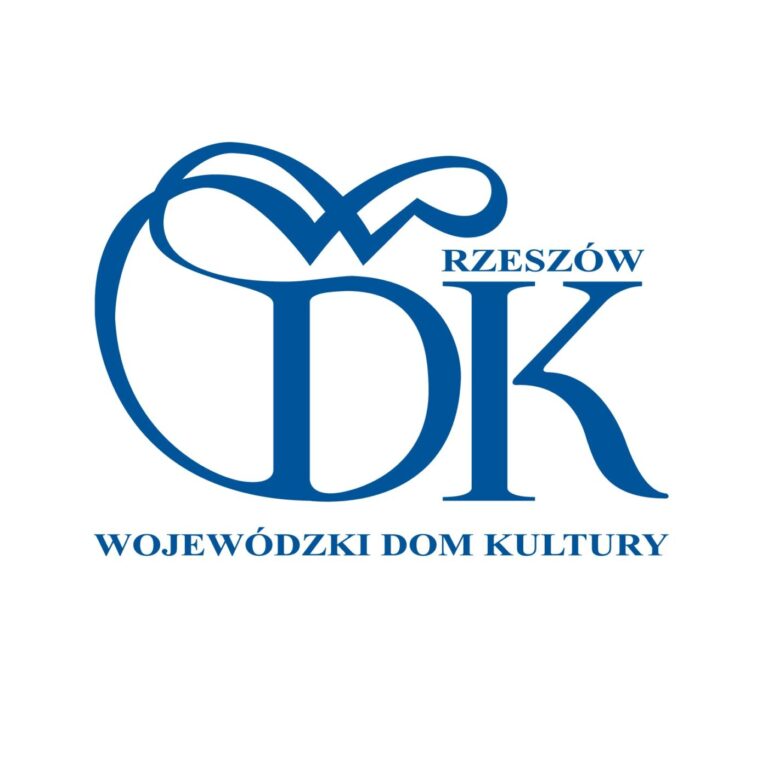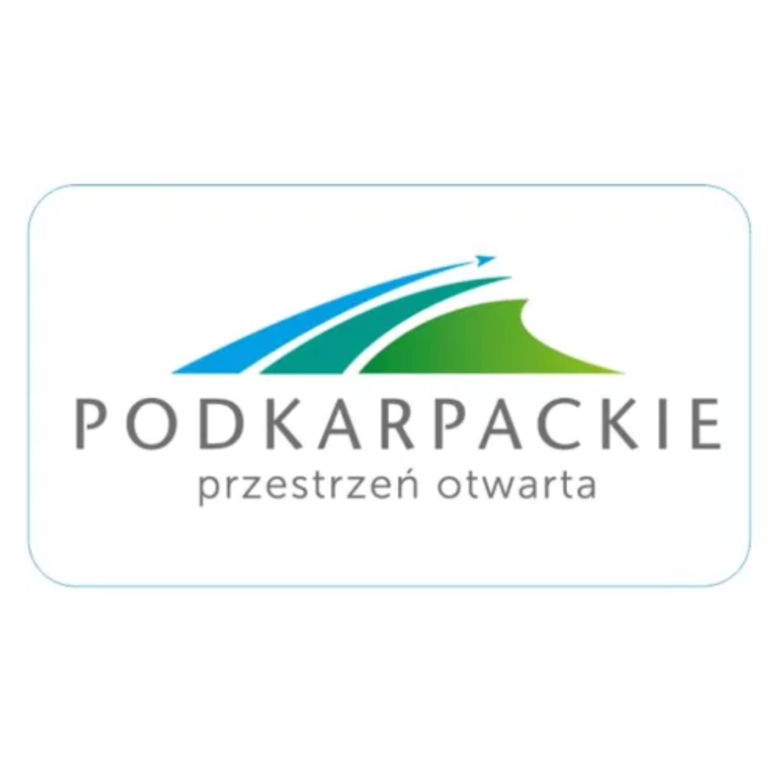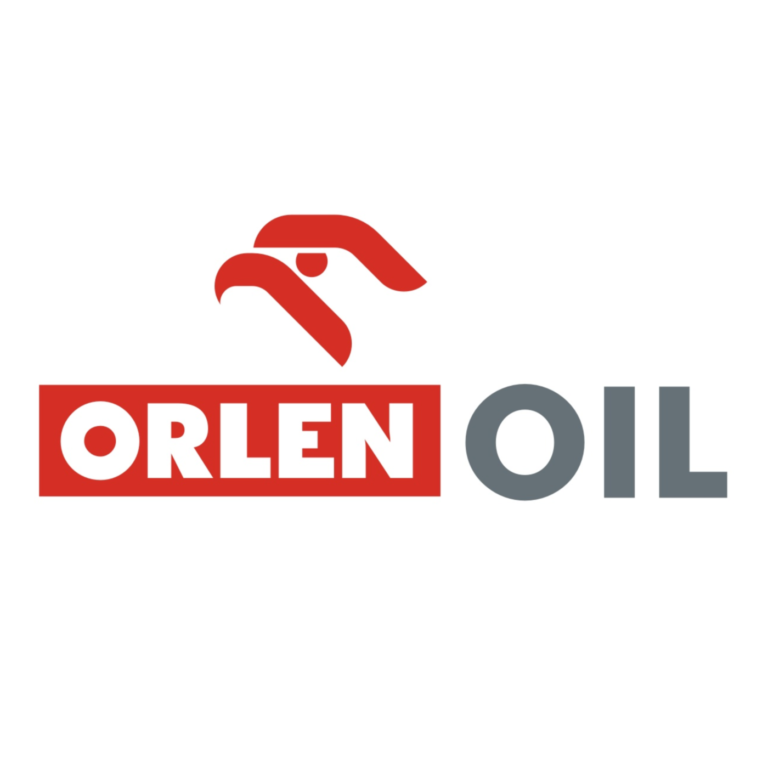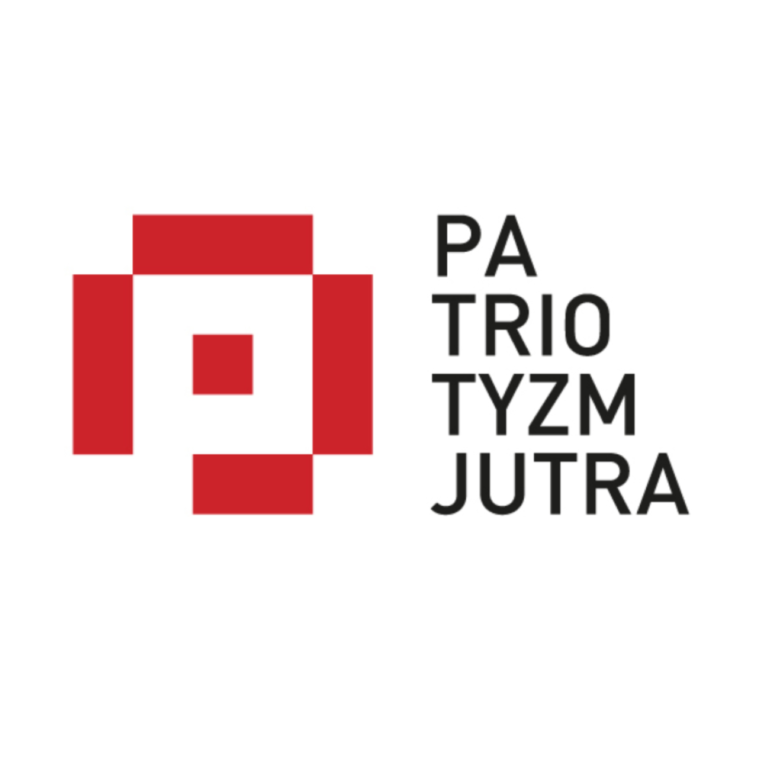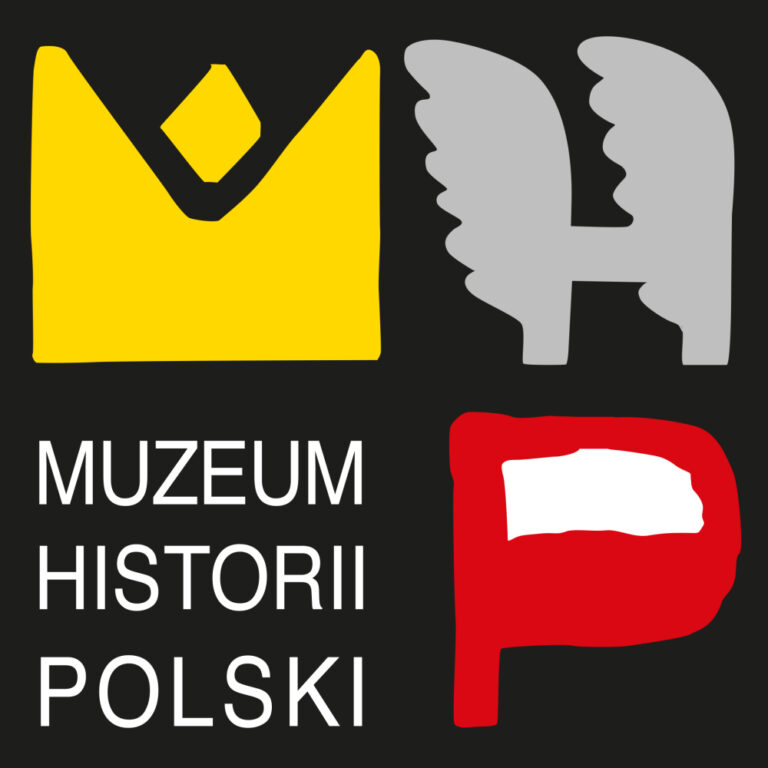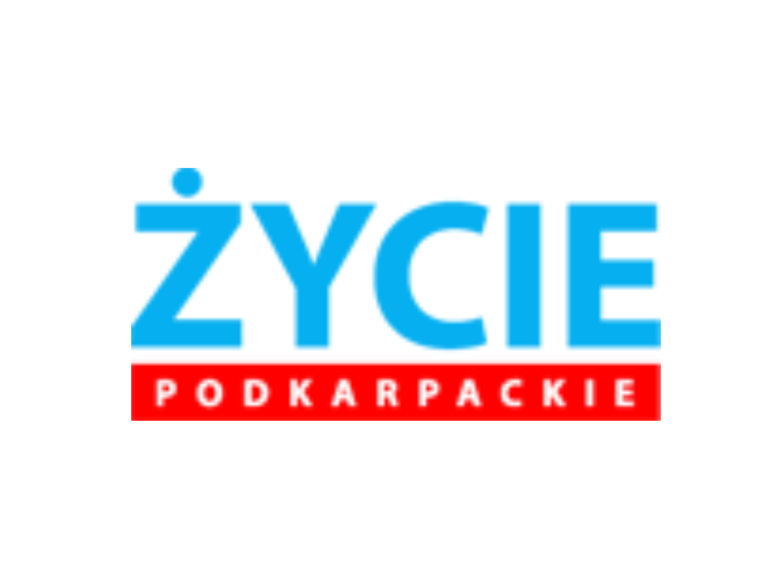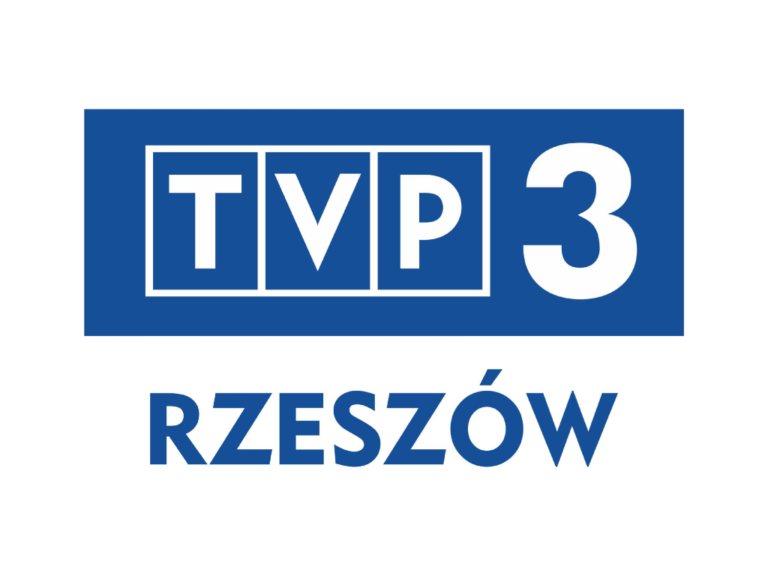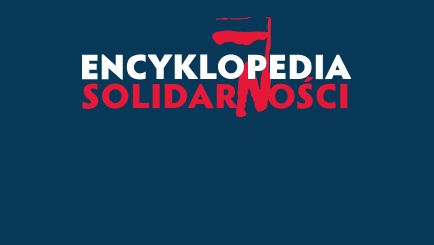
FROM THE ENCYCLOPEDIA OF SOLIDARITY IPN
Waldemar Wiglusz, born March 9, 1953 in Łańcut. Graduate of Rzeszow University of Technology, Faculty of Civil Engineering (1978).
https://encysol.pl/es/encyklopedia/biogramy/19397,Wiglusz-Waldemar.html?search=98922189979361
.
He began his trade union activities at the Przemyśl House Factory, where he founded the Solidarity Factory Committee and was deputy chairman of the Committee. He later became a member of the Regional Board of the Solidarity Trade Union, where - as an engineer - he was in charge of health and safety issues. At the end of November 1981, he was elected secretary of the Regional Board and moved there on a full-time basis, having been granted unpaid leave from his parent company.In April 1989, he was again dismissed from his job and became full-time secretary of the provincial Solidarity Civic Committee in Przemyśl.
After martial law
After martial law was imposed, I returned to work at the House Factory, from where I was soon taken by the SB for an interview warning me against resuming activities in the outlawed union.
After the cancellation of martial law, I got to know, among others, Mark Kuchcinski and the environment known as the cultural attic. I took an active part in these attic meetings. I also participated in the farmers' pastoral at Fr. Bartminski's in Krasiczyn. In both of these places there were very interesting people from all over Poland. I also helped a little in technical matters with the publication of the "Cultural Attic" magazine. Having contacts with underground publishers in central Poland, I received the so-called "bibula" and was mainly involved in distribution.
In the Civic Committee "S"
The provincial KO of the "S" in Przemyśl was formed (in late March and early April 1989) quite spontaneously. These were people connected with the underground Solidarity, with independent culture. Nominations for membership in the KO "S" were given by two people in our region: the regional chairman of the underground Solidarity, Marek Kaminski, and the regional chairman of the Solidarity of Individual Farmers, Jan Karus. They formally established the provincial KO "S" structure and recommended people for membership. The headquarters of the provincial KO "S" was, of course, Przemyśl, but, in fact, in the district towns, that is, Lubaczow, Jaroslaw and Przeworsk, KO "S" was also formed within this provincial structure. The head of the provincial one was Zbigniew Bortnik, and his deputies were the heads of the "district ones." Irena Lewandowska in Przeworsk, Bronislaw Niemkiewicz in Jaroslaw, and Mieczyslaw Argasinski in Lubaczow. They, in turn, looked for people to work in the field ones.
In 1989, I was still working at the Provincial Association of Housing Cooperatives in my profession as a structural engineer. When the Solidarity Civic Committee was formed in Przemyśl, I became the full-time secretary of the Committee. For the second time in my life, I left my professional job for the promised compensation of my otherwise modest earnings at WZSM. And this happened because there were only 2 months left of the election campaign, this short time was a little scary, so we had to concentrate and maximize our activities. Being secretary of the KO "S", I didn't really want to take on the additional role of head of the Election Office, but practically these duties fell on me anyway.
People's selfless commitment
However, I must admit that I shared my duties as secretary in practice with Marek Kuchcinski, who formally had no specific function in the Committee. However, he excellently and selflessly did most of the technical work, i.e. making posters and printing various flyers. I was mainly in charge of organizing meetings between our candidates and voters, which we did together with chairman Zbyszek Bortnik. He handled more the rural areas of the Przemyśl province, while I handled more the cities. I also handled the telex and correspondence with our headquarters in Warsaw.
I remember that when our provincial committee was finally constituted, there was such a backstage meeting. Present there was Adam Szostkiewicz, among others (during the Solidarity era, spokesman for the Przemyśl "S" Regional Board, and later a well-known journalist and columnist), who warned us that "it is pointless to have this mere two-month campaign before the June elections." He completely did not believe that we could manage it, and was convinced that these Citizens' Committees were just an idea to discredit us.
I absolutely did not agree with this opinion of his, and - as I have already mentioned - I did not hesitate to get fired from my job to work full-time for the Committee. Nevertheless, at the beginning I was a little frightened by the enormous amount of improvisation and spontaneity in the Committee's activities. I didn't really believe that it would be possible to steer it. But there was some help from the Civic Committee under Lech Walesa, which appointed liaisons to contact individual Committees in the provinces. They would come to us, to Przemysl, and ask what they could help us with. They were usually academics from Warsaw. And seeing what we were doing here, they were surprised and amazed that having almost nothing, we were able to do so much. It was a surprise to them that people lent us their cars and spontaneously donated money for our activities.
At first, I was very concerned about how we would embrace all this spontaneity of our pre-election campaign. Residents would come in every day and make voluntary donations for our election campaign, and we would receipt it on mere pieces of paper. Besides, we didn't even have official receipts. However, I quickly came to the conclusion that we just had to go with the flow and just, God forbid, not interfere.
Chairman Zbyszek Bortnik, however good an organizer he was, did not have a head for all those formal, bureaucratic matters, so in practice I took it upon myself to deal with financial matters, by the way, together with our chief accountant, Jadwiga Swietlicka (she worked in the Tax Chamber, but Janek Bartminski persuaded her to cooperate with KO "S"). This is because we realized that if the enthusiasm ran out later, someone might demand an accounting of financial receipts and expenditures. We managed to keep this situation under control and thanks to this there were no problems later. And there were even situations where, during the pre-election campaign, residents spontaneously offered to help by driving our candidates to the meeting place, and after the elections some of them came forward demanding payment for the fuel used. Well, and it had to be settled somehow.
I met a lot of interesting people then, and I remember that period very fondly, although it was at the expense of the family, because in practice we had to work from morning to night, and sometimes even around the clock. In the afternoons I often had to take my little son to the Office and "officiate" with him.
Overnight office break-in
The most famous episode that happened to us during the campaign was a nighttime break-in at our KO "S" Office. It was one day in May, when at 11 pm I had to stop by the Office for something. The moment I opened the door, even before the light came on, I saw inside some dark figure throwing himself into flight through a broken window. I made a ruckus, of course, called the police, and reported the break-in to the Committee to Lech Walesa in Warsaw. Zbyszek Bortnik wrote a sharp protest and sent it to the newspapers.
It later turned out that this mysterious figure got inside from a small room adjacent to us (separated by a closed door). I remember that they did not want to give it to us during the transfer of the premises to the KO "S" Office, located at Legion Square (now a fish bar is located there). Most likely, it was used by the SS men to eavesdrop on us, and sometimes at night they would probably enter our Office and rummage through the drawers. The militia, of course, did not detect any perpetrators of the break-in, but the case became nationally famous, as information about the incident even appeared in the "Teleexpress".
June 4 election
This event made us realize that we could not have confidence in the Election Commissions. Consequently, we introduced our own shop stewards into all of them and conducted our own separate vote counts. I have to say that I was against this, probably to the point of exaggerated distrust, but the majority opinion prevailed that this had to be introduced. Well, so the young people involved, who already knew how to use computers, counted all those votes, which on June 4, from the minutes of the Election Commissions, were given to them by our shop stewards.
And it turned out that we were the first in Poland to know the results of the vote in the Przemyśl province. At that time, we received phone calls from press agencies from almost all over the world (including the BBC and Radio Free Europe) asking for facts and our opinions. We didn't really know much about the situation nationwide, but we had our five minutes in the media. Our distrust and commitment paid off. We had the satisfaction when those preliminary election results of ours were later completely confirmed in the official results.
Ahead of local elections
After June 4, and in fact after the second round of those elections, when it was clear after some time that local governments would be created, the question arose about how to select KO "S" candidates for local elections. Initially, Zbyszek Bortnik and I defended the provincial structure like lions, but later, seeing the firm commitment of our opponents, we did not want to disturb them. So in the end, the people gathered around our Committee set up the Przemysl Civic Committee "Solidarity". Anyway, similar "S" KOs began to form in other cities and municipalities. After the local elections, we decided to dissolve the Provincial KO "S" in Przemysl.
As for the relationship of the provincial KO "S" with the underground trade union "Solidarity," there was a lot of support from the union, but above all through the people. Trade unionists, both in Przemysl and after the municipalities, willingly joined the municipal or communal Committees and were active there. And that was the most valuable thing. Because, admittedly, the union also gave some money, and all those posters during the election campaign were supplied to us by the Civic Committee under Lech Walesa in Warsaw. However, the most necessary and decisive thing was the selfless involvement of the people. Thanks to this, the KO "S" also won the elections to the local governments of cities and municipalities in our province.
At the MP's and senator's office and the governor's office
And as for me, shortly after the June parliamentary elections, I was offered a job as director of the MP and Senator's Office in Przemysl (formally, I was on the staff of the Senate Office for half a year). In addition to me, Alicja Bartminska was employed on a full-time basis, while Zbyszek Bortnik was socially active. At that time we jointly organized meetings of residents with our deputies and senators.
After a few months, Senator Jan Musial was appointed governor of Przemysl and I was then offered a job as director of the office of the governor's office. I must say here that as the Przemysl province we were an exception in the selection of the person of the voivode. Well, in all neighboring provinces, governors became chairmen of the Provincial Solidarity Citizens' Committees. This could not happen in Przemyśl, because against Zbigniew Bortnik spoke the old fact of a criminal sentence served in prison, by the way, due to his involvement in some meat scandal.
So Janek Musial, who at the same time remained a senator, became governor. For this reason, by the way, we sometimes had some trouble in the provincial office, because he was overburdened with duties. Janek, by the way, publicly promised that he would no longer hold these two positions and, as governor, would not run in the next parliamentary elections. However, the opposite happened, as he ran for the Senate after all, and was re-elected senator, while continuing to serve as governor of Przemysl under Hanna Suchocka's government.
However, he was not governor for long. This was because he was a member of the Porozumienie Centrum party, and in Suchocka's government people from the Freedom Union played a very significant role. Thus, friction between the two formations had already begun, ending in the so-called "war on top. And since Janek did not raise his hand during the vote for the budget bill, he was promptly dismissed from his position as governor.
Meanwhile, until the end of the existence of the Przemyśl Voivodeship (that is, until 1999), I worked with successive voivodes: with Adam Pęziol, Zdzislaw Ciupinski, Stanislaw Bajda and, finally, with Leszek Kisiel. For a long time I was director of the office, and under Governor Bajda I became director of the Economic Development Department.
My assessment of the past quarter century
I believe that, despite everything, it was not a wasted period, because there was no revolution along the way and everything is going in the right direction. I'm an optimist and accept this reality, but that doesn't mean I haven't experienced some disappointment.
Unfortunately, we are paying the cost of the fact that decommunization and vetting were not done right away, with the result that our power elite was not cleansed of those with an agent past. Moreover, not all the activists of our KO "S" have remained loyal to our right-wing line. Because, for example, together with Zbyszek Bortnik and our right-wing milieu, we organized the election campaign for Janusz Onyszkiewicz, and he, as an MP, later disavowed his right-wing views and first became a liberal in the Freedom Union, and then even turned to the post-communist "democrats."
Interestingly, in the June 1989 elections, the attacking counter-candidate, and therefore a supporter of the old communist system, was Marek Rząsa, who was substituted by the communists as a supposed "independent." He is now a member of the Civic Platform and, surprisingly, has managed to obtain "aggrieved" status from the IPN. I reminded him of this, by the way, right to his face.
Of course, I am frustrated by the crowds of my colleagues who are deeply divided politically. However, I try to organize some meetings of former Solidarity and Civic Committees activists, as well as to help the IPN reach out to these people so that at least their biographies are included in the Solidarity Encyclopedia. This is because the IPN is looking for these former activists to share their memories, and also to honor them in some way.
These conversations and memories are different, of course. Many of these former activists today are disgusted and deeply frustrated because they feel they fought for a more just Poland. It must also be acknowledged that many of them paid a huge personal price in this struggle. When I worked in the provincial office I often encountered such resentment, when people came to me and said, "You work here in the office, you earn good money, you're well off, while many former Solidarity activists are cowering in poverty, and you don't help them."
I wasn't even surprised that they came to me with this, because my position was quite prominent, although my salary was not great and I could barely make it to the end of the month. By the way, I myself know a prominent Solidarity activist who paid a huge price for his activities - this is Marek Pudlinski. He was an activist at the Pollena-Astra plant, he was a member of the "S" Regional Board, and he was one of two from our Region (along with Wojtek Klaj) who was arrested for trying to organize a strike. He was interned, was in prison for a long time, and after martial law, despite the fact that he was an engineer and a very intelligent man, he did not get any job and his family fell apart. Later, Governor Jan Musial came to his aid and took him on as director of a department in the provincial office. Unfortunately, Marek Pudlinski did not find his way to work through his family drama and descent into alcoholism. As a result, we were forced to fire him. Today he lives in a nursing home. And there were more such examples. For example, the chairman of the Committee - Zbyszek Bortnik. He was very embittered that he was not offered any job in this new post-June Poland for his huge contribution of social work for KO Solidarity. By the way, I am convinced that if he had become, for example, a voivode, he - with his temperament - would have fired at least half of the employees of the voivodship office.
After the liquidation of the Przemyśl province, I got a job at the Customs Inspectorate, and after its liquidation - at the Tax Control Office in Przemyśl, where I still work today. In addition, I am socially active in the Society of Friends of Science in Przemysl. Using the experience of my first profession, I represent TPN in a residential community, organize lectures, including working with the IPN.
The interview was conducted and authored by Jacek Borzecki
——————————————————————————————————————
Memories continue, but already from the position of a retiree (November 2022).
In my recollections, I left out the thread of the Przemyśl Cultural Society, important if only because it is related to its reactivation today.
It will also be a good excuse to introduce, once again, the Przemysl independent culture community.
After martial law, in the early 1980s, an environment was formed in Przemysl, today called the Cultural Attic. The name itself comes from the title of a literary and artistic magazine, published at the time in conspiracy against the authorities and censors. The activity, from 1983, consisted of organizing in churches: cyclical art exhibitions "Man - God - World" and Days of Christian Culture. There were also meetings with artists in an authentic attic on the outskirts of Przemyśl in the home of Marek Kuchcinski, later Speaker of the Polish Parliament. Guests included by example only: Roger Scruton, Tadeusz Mazowiecki, Ryszard Legutko, Zdzislaw Najder, Leszek Moczulski, Jaroslaw Kaczynski, Zbigniew Romaszewski, Bohdan Cywinski, Krzysztof Dybciak, Jacek Maziarski, Adolf Juzwenko, Ludwik Dorn, Jan Szyszko and others. Some of these people, were already after 1989.
After the political changes of 1989, people from the broadly independent culture community registered an association called the Przemyskie Towarzystwo Kulturalne in 1990. Premises were made available by the city at Wybrzeża Józefa Piłsudskiego 1 (formerly Manifestu Lipcowego), in a tenement where, during the communist era, an Empik, or International Press and Book Club, formally donated to the Przemysl "Solidarity" Civic Committee at the beginning, had previously operated.
It was then that people began to organize meetings with interesting people, conferences, also using the castle in Krasiczyn; in addition, music concerts mobilizing musicians who originated from the Przemyśl area. At that time, people from Poland also started traveling to nearby Lviv and further afield. At that time, many visitors were able to be persuaded to stop in Przemyśl, taking advantage of their transit to the east.
It was not without publishing activities. In addition to 6 issues of the magazine "Cultural Attic", in the period 1989-1993, the monthly magazine "Views of Przemysl" was published, and within the framework of the PTK Library, 3 compact books were published, including on the then "hot" topic: "Przemyskie Karmel".
The emanation of quasi-political activity was the establishment of the "New State" club at the Society, which invited speakers who held prominent public positions.
Public administration reform, at the turn of the century, provided the impetus for the establishment of the Institute for Regional Policy at the Society. The Institute designed programs such as: Civic Education, Dem-Lok. Local Democracy (Poland-Ukraine border cooperation), the Przemyśl Academy - for the continuation of the creation of an international university, Cultural and Natural Heritage, Environmental Protection and Tourism, Regional Promotion, and the Strategy for the Development of the Region, Subregion and Counties. Not all programs managed to take off, but the latter program resulted in cooperation, already at the level of government and parliamentary structures with Wladyslaw Ortyl - co-founder of Poland's oldest special economic zone in Mielec, or Minister of Regional Development Grazyna Gęsicka (she died in the Smolensk crash). The Eastern Poland program supporting the development of these lands - is the best result, at the root of which was the Society's Institute of Regional Policy.
A "New State" club was also established at P.T.K., which took over the organization of meetings also with people holding important positions in the government and local administration.
At the end of the 1990s, we also spoke out on the proposed administrative reform and abolition of 49 provinces. The most extensive studies on this subject were prepared by Eng. Mariusz Koscielny, then director of the Forest Management Office. We defended the then Przemysl Voivodeship by proposing the transfer to Przemysl of some central institutions and the placement of the offices of the future voivodeship, as well as the establishment of the Przemysl Academy, etc.
Today we can say that the call for the Przemyśl Academy resulted in the establishment of the State Higher Vocational School in Przemyśl. In addition, the city gained the status of a municipal district, and the Customs House and the Provincial Office of Historic Preservation remained from the provincial offices.
But the greatest achievement, of these more than regional ventures within the framework of the Przemyśl Cultural Society, the continuator of Przemysl's independent culture milieu - are the successive editions of the Carpathian Europe Conference, which is an attempt, among other things, to obtain the status of the countries lying within the range of this mountain range - following the example of the European Union's programs for the countries covering the Alpine range. The venues of these conferences are also unusual: the first conferences were held in Przemyśl and Krasiczyn, while later ones also constituted separate panels within the framework of the Economic Forum in Krynica and Karpacz. Many of them with the support of the Chancellery of the Sejm and other institutions.
The long-standing activities of the Society's members resulted in participation in civic committees, later also political parties; also holding positions in business, local government, government administration and parliament. Over time, around 1997, this resulted in the discontinuation of the Society's activities, by not registering the then association with the National Court Register.
After a decade since then, I enrolled in the Society of Friends of Science in Przemysl for at least two reasons: to document and commemorate the stay of General Wladyslaw Anders in December 1939 in Przemysl, and to celebrate in 2009. 200th anniversary of the Pawlikowski family in Medyka, which coincided with the 100th anniversary of TPN. The actual commemoration of General Anders was carried out by the Society of Friends of Przemysl and the Region, and as part of the 3-day celebration of the Pawlikowski family of Medyka: in the TPN Przemysl Yearbook, materials from the conference in MNZP were published in 2009, the Provincial Pedagogical Library adopted Joseph Gwalbert Pawlikowski as its patron, a memorial plaque to Jan Gwalbert Pawlikowski was reconstructed in Medyka, commemorative trees were planted and the Society of Friends of the Medyka Region was established.
In 2013 I contributed to the celebration of the 500th anniversary of the birth of Stanislaw Orzechowski one of the most significant political writers of the Przemyśl area. Dr. Jan Musial, among others, also took an active part in this endeavor, including as editor of the published conference materials.
In addition, in addition to the activity of popularization of science, using my professional experience: a civil engineer and a civil servant - I was involved in the repair of the leaking roof of the scientific library and later in the transfer of the library's book collection and premises to the National Museum of the Przemysl Region.
In 2021, however, it was decided to reactivate the Przemyśl Cultural Society, based in the former MPiK section.
The nascent association of Carpathian Europe Clubs, as one of the results of the cyclical Europe of the Carpathians conferences (34 editions have been held) - thus immediately found refuge in the structures of this Society, which will continue to write its history.
Earlier, that is, before the reactivation of P.T.K. - MNZP reprinted the published literary and art magazines "Cultural Attic," including materials from the unissued last issue.
Marek Kuchcinski's accomplishments as Speaker of the Polish Parliament - in the field of earlier activity in the independent culture community, if only in 2018 - also cannot be overestimated.
The Seym Publishing House and MNZP have released a publication entitled. "City of Valor. Przemyśl on the 100th Anniversary of Regaining Independence" with his foreword.
In addition - a reminder of the figure of Andrzej Maksymilian Fredro on the occasion of national celebrations of 550 years of Polish parliamentarism. The pretext for the finalization of these celebrations in Przemyśl was the study of Dr. Andrzej Król TPN: Sejmik of the lands of Lvov Przemysl and Sanok in Sądowa Višnia during the reign of the Vasa dynasty (1578-1668) published by TPN. These efforts also resulted in the co-financing by the Seym Publishing House of the third volume of the writer's writings published by the National Institute of Culture; a commemorative plaque in the church, a bell named after Andrew Maximilian and his statue-bust - all on the grounds of Pacławska Calvary, and in the church of the Reformati Fathers in Przemyśl the restoration of a plaque commemorating A.M.Fredro, who is buried in the crypt of the church.
He also had a hand in commemorating painter Marian Stroinski with a plaque in the street where he lived, establishing a patron of the castle park and a permanent exhibition at the City History Museum.
Activities in the international field, especially in the Visegrad Group of States, have resulted in the commemoration of the meeting of the heads of parliament in the form of a square and a commemorative stone, as well as monuments to the horse lancers and honvedas at the Knights' Gate in Dominican Square, along with a commemorative plaque.
The Festival of the Culture of the Republic carried out by the Cultural Center in Przemyśl, with the traditions of the pre-war gymnastic society "Sokol," with the participation of such figures as Professor Zdzislaw Krasnodębski and editor Bronislaw Wildstein - was also not without the necessary support in inviting such people.
In the implementation of the above projects usually also took part in the implementation of people once associated with the former environment of independent culture, or the later Przemysl Cultural Society. It remains for me to refer to the memories of these people as well, since confronting them with today - will allow, not only to recall them, but also to make them credible and confrontational.
Waldemar Wiglusz
